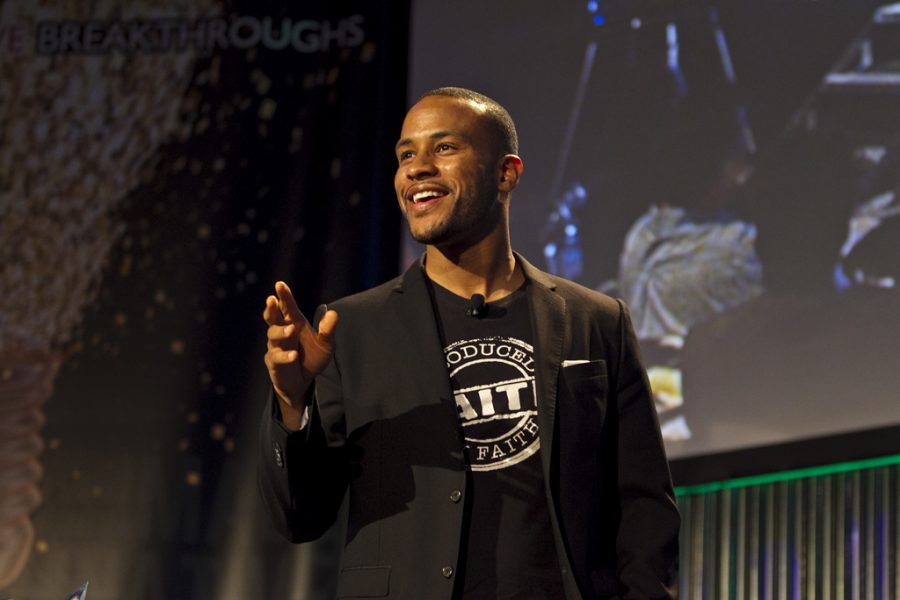posted 02/06/10
Fall 2010 is just around the corner, and along with altering your schedule for your upcoming classes, prepping your church/home life for your upcoming busyness, and researching your needed textbooks, we also hope you’ve been preparing yourself financially.
Preparing by taking an honest account of things at hand; preparing in a way that seeks to honor God with all that you have. In these times, most of us realize that we don’t have as much as we used to, or as much as we would like. However, God always promises to provide us with what we need.
In light of that, we in the Financial Aid office hope to aid you in your quest to respond to God’s call to attend Graduate School here at Biola. With this in mind, here are a few pointers that can help keep you on track:
- The FAFSA is your friend Despite most misconceptions of the FAFSA (Free Application for Federal Student Aid) being too hard and too lengthy of a process to complete, the Federal Government has gone to great lengths to simplify the process as much as possible. Be sure to fill yours out as soon as possible at: https://fafsa.ed.gov/.
Please note: filing the FAFSA does not obligate you to take out a loan but enables you to receive Federal Loans (with better interest rates than private loans) if you should choose to do so.
- Stafford Loans are not the enemy Stafford Loans are low interest federal student loans. The government pays the interest while you are in school and in your grace period on Subsidized Stafford loans (for students who qualify).This year, all new graduate students will have loans through the Federal Direct Loan Program. This means your Stafford Loan interest rate will be 6.8 percent, and your lender will be the U.S, Department of Education rather than a bank. You can go to www.direct.ed.gov/student.html to view more information, but watch for updates from our office for the latest information!
Graduate Students are eligible for $8,500 in base Stafford Loan funds and up to $12,000 unsubsidized Stafford Loan funds annually.
- When You Need a Little More: Grad Plus Loans If you’ve already taken out your full amount of Stafford Loan eligibility and need just a little more help to pay your school bill, Graduate Plus Loans may be for you. Grad Plus Loans are also through the Direct Loan program and have an interest rate of 7.9 percent. Remember, Stafford Loans are always a better choice, so see how much you qualify for first. Private Loans should be considered a last resort because the interest rates can skyrocket without warning! With all this in mind, a Grad Plus Loan might be what you’re looking for. More info can be found here: https://studentaid.ed.gov/sa/types/loans/plus.
Again, always check the Financial Aid page on the Biola Web site (listed below) for more information, or contact our office directly if you have questions regarding your financial aid. http://offices.biola.edu/finaid/grad/.
Work on your application essay during interterm
posted 12/11/09
It’s tempting to turn off your brain during the Christmas break. After all, didn’t you just spend hours studying and writing final papers? However, I have a suggestion for some wise use of some of your break time if you are ready to apply to graduate school: prepare your application essay.
There’s no avoiding the admissions essay. Even though it’s required, you can think of it as your way to speak directly to the committee and demonstrate your unique fit to the program. Some graduate programs require a response to a specific question, while others want an autobiographical essay (also known as a personal statement).
I encourage you not to dread this process, but rather invite God into it with you. While you have some additional time and less pressure away from classes, spend time with God and ask him to reveal important things about yourself and your experiences. I believe it can be a special time with the Lord, and He can confirm (or possibly not) your decision to apply to graduate school. Pray and meditate before you put pen to paper (or finger to keyboard!)
Here are a few questions to consider with the Lord as you begin to develop your essay:
Who am I?
- What characteristics do I possess (e.g. honest, compassionate, loyal)?
- What skills do I have (e.g. analytical, communication, organizational)?
- How have I changed/grown over the years? What caused these changes and how have they affected me?
- Who has influenced me over the years (e.g. parent, sibling, teacher, or friend) and how have they influenced me?
- What are my career goals?
Why do I want to continue my studies?
- Why am I interested in my field of study?
- How has my discipline shaped me? What has my field of study taught me about myself?
How can I address my academic record
- Do I have any gaps or inconsistencies on my records (transcript and/or exam scores) that I can explain?
- Are there any awards, recognition, or honors that I have received and that are worth mentioning?
How do field experiences enhance my application?
- What have I learned from my internship and/or job experiences?
- How are my internship and/or job experiences related to my field of interest?
- What extracurricular activities/ministries have I participated in and how do they contribute to my professional goals?
Who is my audience?
- Who will be reading my personal statement?
- How can I make my essay compelling to the readers?
- Why am I applying to this institution?
- How will attending this graduate school help me grow as an individual and prepare me for my future career?It’s been great to share these ideas and tips with you this semester. I’ll be praying that your finals go well, and that the love shown by God’s gift – sending his Son Jesus Christ to us – will fill your heart this Christmas season!
What’s with the GRE?
posted 11/13/09
Like it or not, if you’re applying to graduate school, the Graduate Record Exam (GRE) is on your to-do list. So, what is the GRE, and how can you prepare for it?
The short answer is that it’s a grad school aptitude test. The GRE General Test measures the skills that you’ve acquired over the high school and college years. It is meant to measure your potential to succeed in graduate school. The GRE measures a variety of skills that are thought to predict success in graduate school across a wide variety of disciplines. The GRE General Test contains sections that measure verbal, quantitative and analytical writing skills.
(Actually, there are several GRE tests. Most often when an applicant, professor, or admissions director mentions the GRE, he or she is referring to the GRE General Test. Depending upon your discipline, you may be required to take a GRE Subject Test or the GRE Written Test in addition to the GRE General Test.)
Preparation Tips
Please do yourself a favor and prepare for this exam at least six months in advance of application due dates! This is not the time to cram. Try to take it the spring or summer before you apply to grad school. You can always retake the GRE, but remember that you’re allowed to take it only once per calendar month. Because all prior scores are sent to the institutions to which you’re applying, never take the GRE as practice.
Some helpful ways to prepare include buying a GRE review book or downloading sample tests (easily found with an online search). Try a practice test under conditions similar to the actual GRE. Then, based on your practice score, devise a study plan to help you brush up on the areas that you scored lower on: vocabulary, reading comprehension, analogies, algebra and geometry.
Remember, while the GRE is only one of several criteria that graduate schools use to evaluate your application, it is one of the most important. This is particularly true if your college GPA is not as high as you’d like. Exceptional GRE scores can open up new opportunities for grad school.
A good application
posted 11/06/09
What makes a good graduate school application? What are graduate schools looking for? What do I need to know to have the best chance of being accepted? Good questions, all. Let’s start with one important part of your application: the letter of recommendation. These letters are required by all graduate schools, and in most cases they require at least three of them.
First of all, don’t stress over the letters of recommendation. A big mistake most students make is to not think about who to approach and simply settle for whoever is available. This is not the time to settle. Choose the easiest path, or be impulsive. There is no simple shortcut to getting excellent letters of recommendation. It takes work – throughout your college years. Your goal is to develop quality relationships with faculty and others in mind in order to obtain letters of recommendation that will move your application to the top of the pile. Take the time and make the effort to make a list — the professors you have had and others of authority that you have come into contact with during your student years (employers, internship supervisors, supervisors from places where you have volunteered).
Consider the following qualities of someone who can write an effective recommendation letter for you. Remember, they don’t have to meet all of these criteria, but think through your final list with these in mind:*
- Is aware of your field of interest and the schools you are applying to.
- Is able to evaluate your performance in your field of interest.
- Is able to discuss your personal characteristics.
- Is able to discuss your capacity to work with others.
- Can discuss your leadership skills.
- Can evaluate your level of professionalism (e.g., punctuality, efficiency, assertiveness).
- Can discuss your academic skills — not simply experience, but evaluate your potential to succeed in graduate-level study.
- Evaluates you positively relative to others.
- Has some recognition and whose judgment is highly valued within the field.
- Is able to write a good reference letter (i.e., is literate).
As with all elements of the application process, make sure you understand what the graduate school is asking for before you approach someone to write a letter of recommendation for you! For example, Biola’s graduate schools require different letters such as from an employer, pastor, academic and others, depending on the program to which you are applying.
To summarize: begin thinking about letters of recommendation as soon as you think you’d like to apply to graduate school. Developing the relationships that are the foundation of good letters takes time.
*source: About.com
Matchmaking – Part 2
In a previous blog I talked about some important value questions to ask a prospective graduate school during your selection process. I also suggested that you begin the process at least 15-18 months before you think you’ll start graduate school. Why so early? Let me share a checklist of sorts that can help you keep track of the process. Of course this is only a guideline, but it’s usually best to start earlier rather than later.
15-18 months to matriculation (which means to be enrolled as a student) – Commit to prayer. – Research and gather information from the schools you are interested in (most people today use the Web but consider alumni, friends and family for recommendations as well). – Go visit campuses of interest.
9-12 months to matriculation – Finalize your list to the top 3-4 schools – Begin the application process (pay application fees; prepare for and take graduate school entrance tests if necessary; gather references; contact your current and any prior schools to send your transcripts) – Pay attention to all deadlines! (I can’t emphasize this enough; many prospective students wait until the last minute and that can jeopardize your chances of being accepted. Remember, you are not the only one who is applying for your graduate program!) – Keep praying
6-9 months to matriculation – Complete the financial aid process (the earlier the better) – Still praying!
3-6 months to matriculation – Complete the transition process for the school you accept to attend (housing, job and/or ministry search, class registration, planning your move). – Pray.
As you can see, the process is involved and there are a lot of things to consider! Usually the graduate admissions office and a graduate admissions counselor will help you along the way. Next time I will explore in more detail some of these steps, but for now this list should help you think through the big picture.
It’s about the prof
posted 10/23/09
What are the professors at Biola’s graduate schools really like? Who will be teaching my graduate classes and coming alongside of me during my academic career? We thought you’d like to know. So, reprinted with permission below are excerpts from the blog of Dr. Joe Hellerman, professor of New Testament language and literature, Talbot School of Theology. Hopefully this glimpse of one of Talbot’s professors prompts you to ask yourself the question: “What are the professors really like at the graduate school that I’m considering attending?”
What motivated you to enter your field of study? What keeps you going?
I found studying the Bible and biblical languages in seminary to be immensely satisfying, and, as a pastor, I decided that I wanted to influence future pastors in a broader way than I could if I were to remain full-time in the local church. So that started it all.
What keeps me going as a pastor-professor is the incredible honor of teaching and mentoring men and women who are giving their lives to make a difference in this world for our Lord Jesus Christ. They deserve better, but somehow God has chosen to use me in their lives.
What is your favorite passage of scripture?
I really have to pick? Okay, I’ll choose Philippians 2:5-11. Much of pastoral ministry has to do with the way we choose to leverage the authority we have as Christian leaders as we minister to others in the body of Christ. Sadly, it seems that almost on a weekly basis I run into someone who has been hurt or otherwise abused by a pastor or another individual in Christian leadership, that is, by a leader who has used his authority in a self-serving way. When I wrote my book on Philippians (“Reconstructing Honor”), I was profoundly impressed by the way the Second Person of the Godhead leveraged his power and authority — solely in the service of others. We would all do well to become more like Jesus in this regard.
If there is one author/theologian that you believe everyone should read, who is it?
This is a hard one. There are so many New Testament scholars I admire (Bauckham, Hurtado, Carson, Witherington, etc.). If I must pick one, however, I’ll finger N. T. Wright, not necessarily because I agree with his every conclusion, but because (a) he thinks creatively, (b) he thinks ‘big picture,’ and (c) he thinks historically/culturally first,and theologically second. I have probably learned more from N. T. Wright than from any other author/theologian.
Wright is not, however, an author/theologian I think “everyone should read.” I would not want the people in my church feeding themselves solely on a diet of Tom Wright, for example, without a broader scholarly context in which to situate him. But a budding New Testament scholar (e.g., a seminary student with a rudimentary grasp of the field) would do well carefully to work his/her way through Wright’s trilogy on early Christian history.
For more from Dr. Hellerman’s blog go to: http://hellerman.wordpress.com/
Show me the money
posted 10/16/09
Perhaps the most frequent topic regarding graduate school, and yet possibly the most distressing, is finances. It doesn’t take long to discover that a quality education at a private institution is not inexpensive. It can also be very confusing to find information about financial aid, scholarships or other sources of funding for students. Here’s some help! Thank you to Judy in Biola’s financial aid office for providing this list of additional resources. International students are accepted for many of them, too. However, many of these deadlines are rapidly approaching, so don’t delay in checking them out! And remember that Biola’s financial aid staff is always eager to help answer your questions and put your graduate education within financial reach.
Economic help with childcare for married or single students:
Ellis Scholarship for Childcare
- Deadline: November 1, 2009
- Amount: $1,000
- Website: http://www.ncjwla.org/community_services/women_helping_women/scholarships.php
The Sol Goldberg Childcare Subsidy
- Deadline: November 1, 2009
- Amount: $1,000
- Web site: http://www.ncjwla.org/community_services/women_helping_women/scholarships.php
A non-profit dedicated to Christian ministry, offering educational scholarships:
Optivest Foundation Benevolence Gift & Scholarship
- Amount: up to $1,000
- Web site: http://www.optivestinc.com/company/optivest_foundation.php
- Note: International students may be eligible
An essay contest! The 2009 topic: “Should there be a death penalty? Defend your position on practical, philosophical or ethical grounds.”
Akademos / TextbookX.com Scholarship Contest
- Deadline: October 31, 2009
- Amount: up to $2,000
- Website: http://www.textbookx.com/scholarship/
- Note: International students are eligible
Another essay contest, for those up on current events. 2009-2010 topic: “Explain if you think the recent economic stimulus package signed by the president will solve the depression the United States is in right now.”
Frank O’Neill Memorial Scholarship
- Deadline: December 31, 2009
- Amount: $1,000
- Web site: http://www.easyaid.com/scholarship_form.html
- Note: International students are eligible
This is for Korean American or minority students. Note: this Web site is written in Korean!
New Life Church of Chicago Scholarship Program
- Deadline: October 31, 2009
- Amount: $2,000
- Web site: http://www.newlife-chicago.com/board/zboard.php?id=general_forum&no=224
Matchmaking
posted 10/08/09
Selecting a graduate school can be an overwhelming experience, and it’s definitely an important decision that will affect your family, work and future ministry and career. I’d encourage you to think of it as matchmaking – finding the best match between you and the graduate school. This helps ensure that both you and the school you choose act as wise stewards of time and money, and result in a quality education. That’s the approach we use in the graduate admissions office as we seek students who are well matched to Biola’s mission.
Commit yourself to the selection process well in advance (at least 15-18 months ahead) with prayer, reading through the Scriptures, and seeking advice from godly friends and family. Invite God into your decision and he will guide you in making a wise choice.
More often than not, prospective graduate students gather information about the amount of time that the program will take and, of course, the financial issues of attending grad school. While those are obviously important, also consider some important value questions. Get answers from each of the schools that you are considering.
- What is the school’s theological stance? Does its doctrine align with yours?
- How important is it that the faculty, staff and students share your beliefs? They will become a community you’ll be in for several years.
- Consider the faculty’s academic experience and scholarship (and ministry experience if you’re considering a seminary education). How involved are they in their field, and to what degreee will they come alongside of you (academically and spiritually) during your studies?
- Who are the alumni? Does the school follow up after you graduate and help you connect?
Don’t be afraid to inquire about the school’s core values. Your goal is to make a prayerful and informed decision. The counselors in our office would be glad to answer your questions and suggest other resources to help you. Just ask!
So, why a grad school blog?
posted 10/02/09
Welcome to the Biola Grad School blog. As we begin this fall semester with record grad school enrollment, we in the graduate admissions office feel very blessed that God has brought these students here! Maybe you’re considering graduate school and want to know more about the graduate programs that we offer. That’s certainly an important part of what this blog is about. However, I want to share a bit more about the larger picture over and above record-setting admissions numbers. I want to share what God is doing in the heart of graduate school students, alumni, faculty and staff throughout Biola’s six different graduate schools.
Here’s a recent letter that one of our admissions counselors for the Cook School of Intercultural Studies received:
“I was having dinner last night with a few of the other recently enrolled ICS grad students. And we all had similar experiences choosing Biola. As it turns out, you were extremely helpful and caring – more than anyone at any of the other schools we had applied to. Your attitude and the attitudes of our faculty in ICS (Intercultural Studies] were deciding factors of our choosing Biola. Just thought you’d like to know. Keep up the good work!”
What a great encouragement! We want all of our students to have an experience like it, and that’s why we hold to some very important principles when we work with prospective graduate students.
1.We have a high regard for people as created in the image of God. We deal with eternal souls.
2.We take it seriously that God is calling people to the work he has for them. We are not the end, we are a means, and can offer aid and direction to “fellow servants” traveling the journey God has set before them.
3.We are one of the first, if not the very first, representation of Biola they will meet.
4.We want to model our spoken testimony — to the prospect/applicant, to co-workers, to student workers — and before the Lord.
I look forward to an amazing semester and sharing more about Biola’s graduate schools with you. Hopefully the information about finances and financial aid, what graduate student life is like, which programs we offer, meeting our admissions counselors, and more will be helpful if you are considering graduate school. So what do you want to know? Ask questions, leave comments, and let us hear from you!






